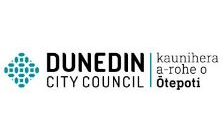Green Island
Service age groups
Green Island had a higher proportion of [gender] pre-schoolers and a similar proportion of [gendersP] at post retirement age than Ravensbourne-St Leonards in 2018.
The Age Structure of the population is the most widely used component of the Census. It is an indicator of an area’s residential role and function and how it is likely to change in the future. Green Island's age demographics are indicative of the area’s era of settlement and provide key insights into the level of demand for services and facilities (as most services and facilities are age-specific).
Service age groups divide the population into age categories that reflect typical life-stages. They indicate the level of demand for services that target people at different stages in life and how that demand is changing.
To get a more complete picture of Green Island's demographic characteristics, Green Island's Age Structure should be viewed in conjunction with Family and Household type data.
Derived from the Census question:
'When were you born?'
Total population
Source: Statistics New Zealand, Census of Population and Dwellings (opens a new window) 2006 and 2018. Compiled and presented in profile.id by .id (opens a new window)(informed decisions).Stats NZ data quality rating: Very high(opens a new window)


Dominant groups
Analysis of the service age groups of Green Island in 2018 compared to the Ravensbourne-St Leonards shows that there was a higher proportion of [gendersP] in the younger age groups (0 to 17 years) and a similar proportion of [gendersP] in the older age groups (60+ years).
Overall, 21.8% of the [gender] population was aged between 0 and 17, and 22.3% were aged 60 years and over, compared with 19.4% and 22.6% respectively for the Ravensbourne-St Leonards.
The major differences between the [gender] age structure of Green Island and the Ravensbourne-St Leonards were:
- A larger percentage of 'Babies and Pre-schoolers (0 to 4)' (6.7% compared to 3.2%)
- A larger percentage of 'Young workforce (25 to 34)' (14.1% compared to 11.8%)
- A smaller percentage of 'Older workers and pre-retirees (50 to 59)' (13.8% compared to 17.5%)
- A smaller percentage of 'Empty nesters and retirees (60 to 69)' (10.5% compared to 14.0%)
Emerging groups
From 2006 to 2018, Green Island's [gender] population decreased by 18 [gendersP] (1.5%). This represents an average annual [gender] population change of -0.13% per year over the period.
There were no major differences in Green Island between 2006 and 2018.
